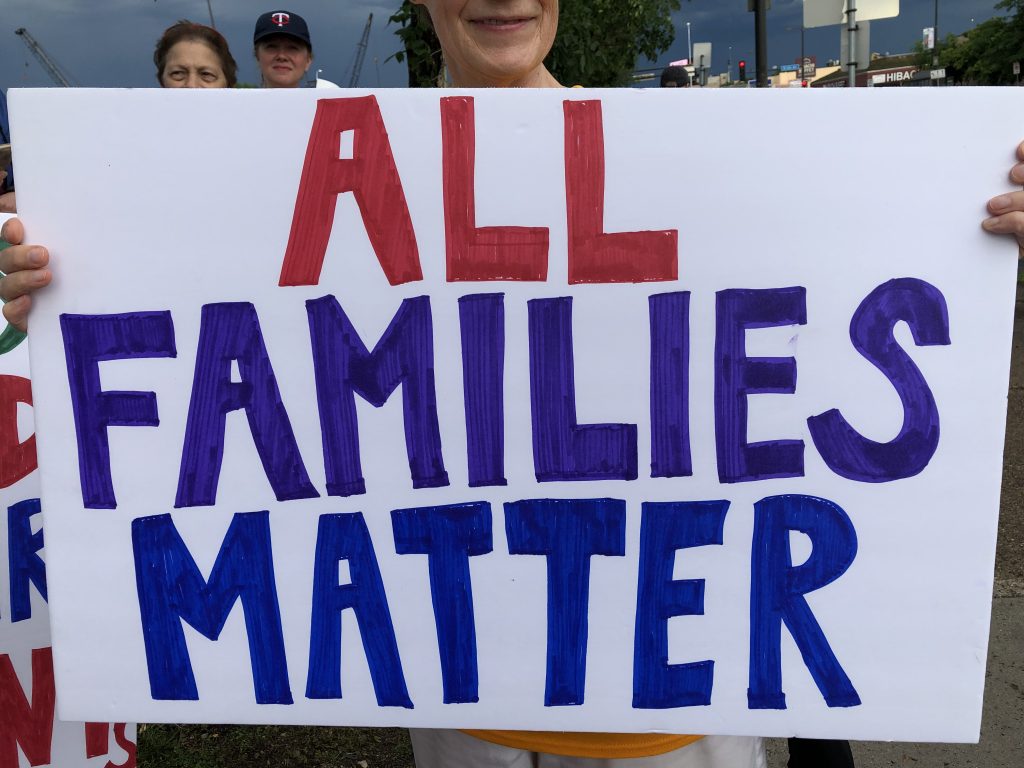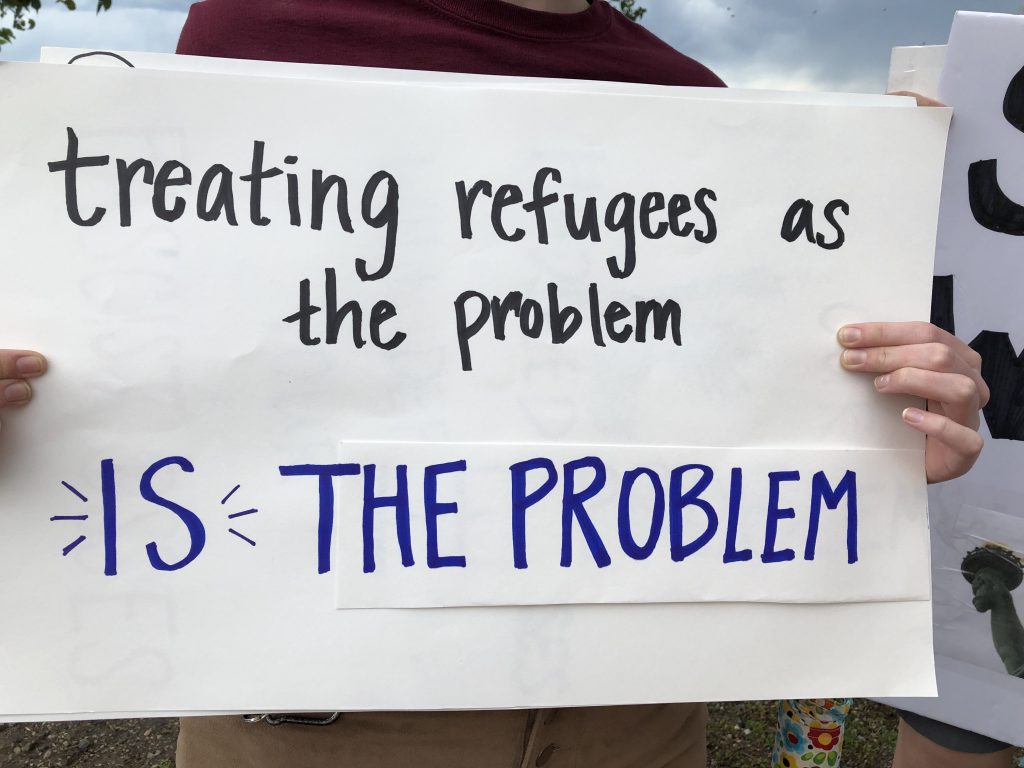Archives
Three federal judges hit Trump on immigration policy changes
Public Charge Blocked Nationwide

October 11, 2019 – Today, two injunctions were issued blocking the Trump administration from implementing a new public charge rule. The nationwide preliminary injunctions issued in State of New York v. United States Department of Homeland Security and State of Washington v. United States Department of Homeland Security (in which the State of Minnesota is a plaintiff) prevent application of the rule to refuse admission to immigrants who use certain public benefits such as Medicaid, SNAP, and affordable housing. These lawsuits were two of nine legal challenges filed across the country.
The Immigrant law Center of Minnesota (ILCM) is part of one of the nine legal challenges. Along with the City of Baltimore and five other plaintiffs, ILCM challenged the constitutionality and legality of the changes to public charge in a lawsuit filed in federal district court in Baltimore earlier this month. The complaint argued that “the Public Charge Rule makes dramatic changes to immigration policy that are designed to reduce legal immigration levels and to disfavor poorer immigrants and immigrants of color.” The consequences of immigrants and their families giving up needed health care, food, and affordable housing would be felt not just by immigrants and their families, but also by all members of our communities.
“ILCM celebrates the blocking of the public charge rule,” said Veena Iyer, executive director of the Immigrant Law Center of Minnesota. “The rule would harm residents, communities, and economies all across Minnesota and the country. While we celebrate, we also recognize that there is still work to do. This injunction does not block public charge permanently. We hope this decision can serve as a positive indication for our own legal challenge. We want to see this public charge rule blocked nationally and for good.”
Bar Buzz: ILCM joins suit against public charge rule
Defense fund helps local ICE detainees
Immigrant Law Center of Minnesota Files Brief Supporting DACA in U.S. Supreme Court
October 7, 2019 – On October 4, the Immigrant Law Center of Minnesota (ILCM) joined other legal services organizations in filing a brief before the Supreme Court in the cases challenging the Trump administration’s attempt to terminate Deferred Action for Childhood Arrivals (DACA). The Supreme Court will hear oral arguments in these cases on November 12, with a decision expected by June 2020.
“DACA recipients are our fellow Minnesotans, our co-workers, our friends.” said ILCM Executive Director Veena Iyer. “Most came to the United States as young children. They have lived here for an average of 20 years. This is their home, and they belong here.”
Most DACA recipients are part of mixed-immigration status families, and DACA recipients are parents of 256,000 U.S. citizen children. The U.S. public overwhelmingly supports keeping these families together and giving DACA recipients a path to permanent status in the United States.
DACA recipients go to school and work and contribute to the U.S. economy. Nationally, DACA recipients and their households pay $5.7 billion in federal taxes and $3.1 billion in state taxes annually.
The three cases consolidated for oral argument on November 12 are Regents of the University of California, et al. v. Dept. of Homeland Security (DHS), Batalla Vidal v. Nielsen, and NAACP v. Trump. Because of existing court orders, individuals who currently have or previously had DACA can continue to apply for renewal of their DACA status during the pendency of this litigation. ILCM regularly assists individuals with DACA with renewing their status.
Immigrant Law Center of Minnesota Files Legal Challenge to Public Charge Regulation
October 1, 2019—In a lawsuit filed in federal district court in Baltimore, the Immigrant Law Center of Minnesota challenged the constitutionality and legality of recent changes to the public charge rule applied to immigrants. ILCM joined the City of Baltimore and five other plaintiffs in this challenge, which is one of at least nine legal challenges filed across the country.
The new rule sets an unprecedented high bar for demonstrating that applicants for legal permanent residence (green cards) and family-based visas are not now and never will be dependent on public assistance. In addition to marking receipt of certain public benefits as evidence of “public charge,” the rule applies to millions of immigrants holding down full-time but low-paying jobs. In short, says the complaint, “The Public Charge Rule makes dramatic changes to immigration policy that are designed to reduce legal immigration levels and to disfavor poorer immigrants and immigrants of color.”
“The public charge rule is one more example of the heartless anti-immigrant policies promulgated by this administration,” said Lenore Millibergity, senior attorney at the Immigrant Law Center of Minnesota. “Immigrants are not a burden on our public benefits. They are less likely to use public benefit programs, using fewer welfare and entitlements benefits per person than native-born Americans.”
During the public comment period, the Department of Human Services received more than a quarter of a million comments on the rule, and the overwhelming majority of these comments opposed the rule.
Turning Away Refugees Is Just Wrong
September 27, 2019—Turning away refugees, in 2019 or 1939, betrays every principle of human rights that the United States professes to honor and uphold. Yet once again, the administration has announced stringent limits on the number of refugees the United States will accept in the year ahead: the number for 2020 has been slashed to 18,000.
During the four decades before 2017, refugee admissions averaged 95,000 per year. Then the new administration started turning away refugees. In fiscal year 2018, which began on October 1, 2017, the United States admitted only 22,491 refugees, less than half of that year’s 45,000 cap. The 2019 cap was lowered to 30,000. Although the final count is not yet in, the number of refugees admitted is clearly even lower.
“This betrayal of U.S. commitment to human rights comes during a worldwide refugee crisis,” said Veena Iyer, executive director of the Immigrant Law Center of Minnesota. “Historically, we have led the world in refugee resettlement. The refugees who have come to the United States have quickly become valued and contributing members of our communities. Many are now U.S. citizens. Now, at a time of great need, we are turning our back on refugees seeking permanent homes.”
The world’s richest countries take in the fewest refugees. Middle and low-income countries take in the most refugees, holding them in camps for years until they can return home or find places for permanent resettlement. Turkey hosted 3.5 million refugees in 2017, mostly refugees from war in Syria. Pakistan and Uganda each hosted 1.4 million refugees.
Resettlement means accepting refugees who will make this country their permanent home. The United States already resettles fewer refugees, in proportion to our population, than other countries. In 2017, even before the drastic cuts to refugee resettlement took full effect, the United States resettled 102 refugees per one million residents. In the same year, Canada resettled 725 refugees per one million residents. Australia resettled 618 refugees per million residents. Norway—528.
Now the president of the United States has set the lowest-ever cap on refugee admissions—18,000 for the year 2020. We can do better than this. We must do better.





